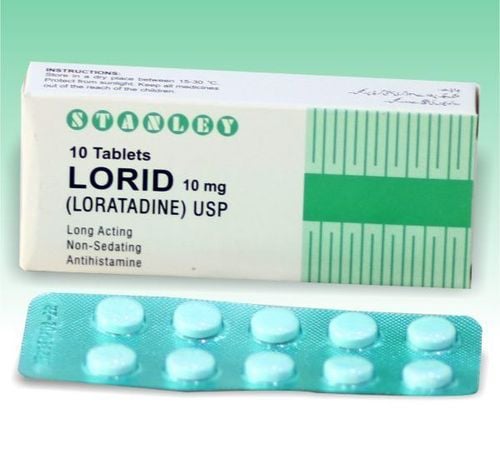This is an automatically translated article.
Calcium is an essential mineral for the development of bones and teeth of children. Children in the process of teething will need a sufficient amount of calcium for the most comprehensive development of teeth, avoiding dental diseases due to unstable structures.
1. The teething stages of children
Every baby has to go through 2 teething stages:
Baby teething stage: Baby teeth are formed from about 7 to 10 weeks of fetal life. The process of teething baby teeth in each child is often different. About 5 to 9 months is the period when children grow 4 middle incisors; from 7 to 11 months grow 4 lateral incisors; from October to 18 months grow 4 premolars; From 16 to 24 months, 4 canines grow and from 20 to 30 months, children grow 4 molars. Thus, about 30 months, the child has all 20 teeth in the jaw. Baby teeth help children chew food, but after a while, they will loosen on their own, making room for permanent teeth to replace. Permanent teething stage: This is the type of tooth that will last forever for an adult, if lost, there will be no replacement of any other teeth. Permanent teeth are grown to take the place of baby teeth. Children start teething from 5 to 6 years old and end when they are 12 to 14 years old, depending on the child. Teething time of children depends on many factors, one of the important factors is nutrition. The development of teeth depends on the mother's nutrition in the fetal stage and the nutrition for the child during teething, especially in the first 3 years of life.
2. Why do teething children need calcium supplements?
Calcium is a mineral that plays a very important role in the development of the child's body. Calcium is an indispensable component in the composition of bones and teeth, participates in neuromuscular transmission and participates in blood clotting.
Calcium in the body is mainly concentrated in bones and teeth, it is an essential nutrient for healthy baby teeth, ensuring the strength of both teeth and gums. If there is a lack of calcium, it will slow down teething, the strength of the teeth is weak, the teeth are broken when there is a slight impact, and they are easily broken.
Thus, children at the teething stage have relatively high calcium requirements. Therefore, it is necessary to supplement the amount of calcium needed to develop stronger teeth, avoid the phenomenon of teeth growing slowly, fragile teeth, missing teeth...
It should be noted, because the amount of calcium stored in children is not As much as adults, it is necessary to supplement daily to provide the necessary amount for the baby. The calcium supplement for the baby through the oral route is the most suitable and easily absorbed for the child. Additional sources of calcium include milk, eggs, dairy products, crabs, shrimp, fish, dark green vegetables...
Watch now: Do children with delayed teething need calcium supplements?

Trẻ em cần bao nhiêu canxi mỗi ngày phụ thuộc vào giai đoạn mọc răng
3. How much calcium do children need each day?
There are many parents wondering if a 6-month-old child needs calcium supplements or how much calcium a 1-year-old child needs per day? Those questions are very common when we care for children. With children at any stage, it is necessary to supplement the amount of calcium necessary for the child's full physical development. Especially helps to develop comprehensive bones and teeth.
According to the recommendations of the American Institute of Medicine, your baby's calcium needs by stage include:
Children from 0 to 6 months old need 210 mg of calcium per day. Children 7 to 12 months of age need 270mg of Calcium per day Children 1 to 3 years of age need 500mg of Calcium per day. Children 4 to 8 years old need 800 mg of calcium per day. Children 9 to 18 years old need 1,300 mg of calcium per day. Children need enough calcium supplements in stages. Don't add too little or too much will harm the baby's body.
4. Note when supplementing calcium for children during teething period
Calcium supplementation should be through a full and varied diet, because this is a way to provide easily absorbed calcium for the baby. In order for calcium to be absorbed to the maximum, parents should let children do physical activity every day, run and play in the sun continuously for at least 10 to 30 minutes a day or properly sunbathe for children to absorb adequate amounts. essential vitamin D. Sometimes a child's dental problems at this stage are not entirely caused by calcium. If parents maintain a balanced diet but children still have problems with teeth such as delayed teething, missing teeth, etc., they should see a doctor to find out the cause. Do not arbitrarily supplement calcium indiscriminately to avoid harm to the baby. For children with anorexia, poor nutrition, and high risk of calcium deficiency, children can take calcium supplements orally but need to consult a doctor.

Trẻ em cần bao nhiêu canxi mỗi ngày cần thông qua việc ăn uống hàng ngày
For the best development of children's teeth, a balanced nutritious diet is very important. In particular, calcium cannot be ignored, it helps children's teeth to be stronger. Therefore, parents should pay attention to supplementing with this nutrient.
In addition, the baby needs to add the necessary micronutrients: Zinc, selenium, chromium, vitamins B1 and B6, ginger, acerola fruit extract (vitamin C), ... to improve taste, eat delicious, achieve the right height and weight, and exceed the standard, have a good immune system, strengthen the resistance to get sick less often and have less digestive problems.
Also according to leading nutrition experts, parents need to be calm and persistent when supplementing with nutrients for children, even through eating or functional foods. In particular, the use of functional foods should choose those of natural origin that are easily absorbed, do not allow children to use many types at the same time or continuously change the types of functional foods. Besides, nutritionists also emphasize on the role of biological zinc; Parents should learn and supplement zinc for children properly at the appropriate time, to avoid zinc deficiency affecting the comprehensive development of children.













